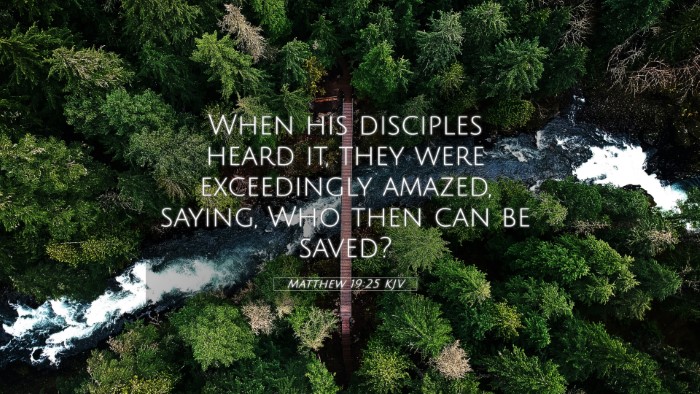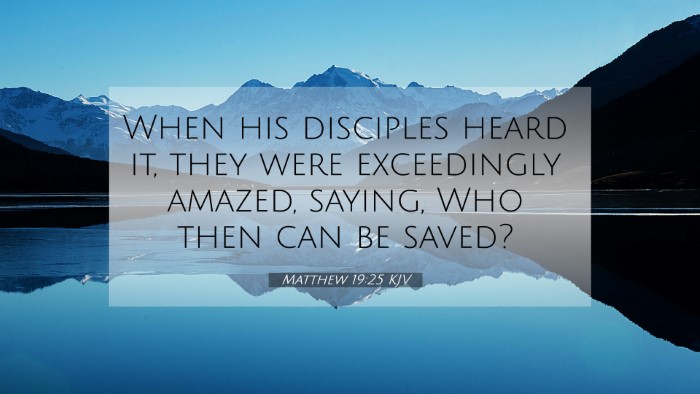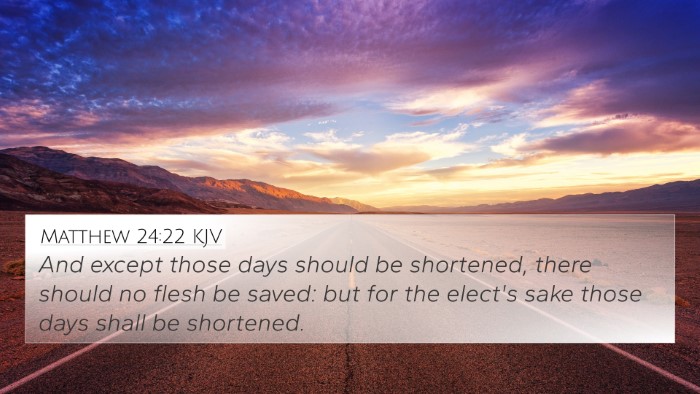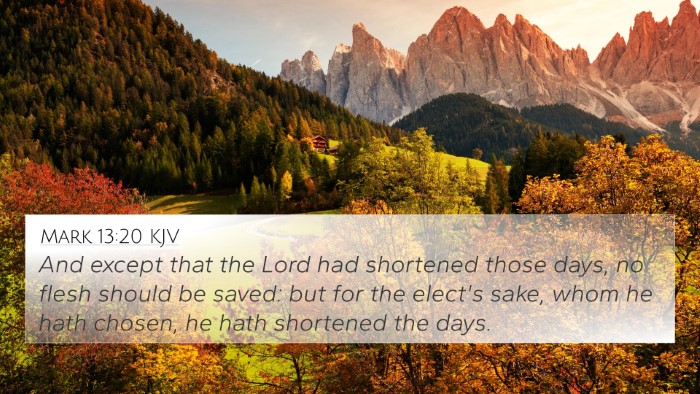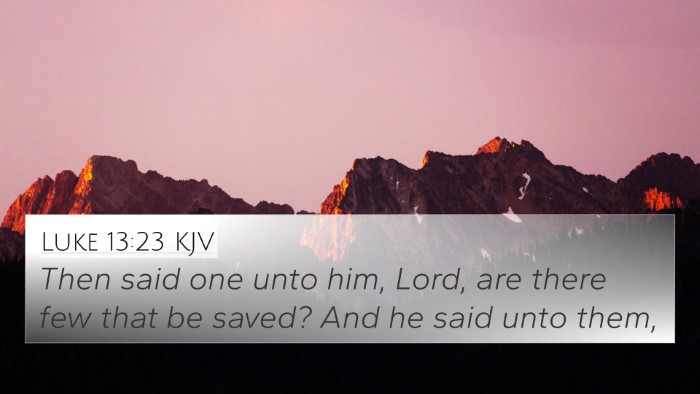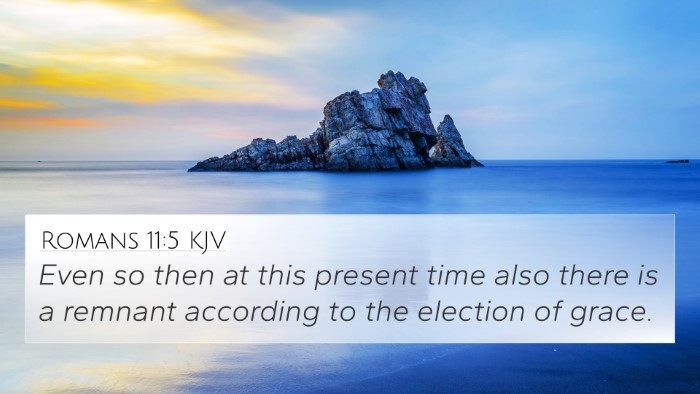Understanding Matthew 19:25
Matthew 19:25 states, "When His disciples heard it, they were greatly astonished, saying, 'Who then can be saved?'" This verse occurs in the context of Jesus explaining the difficulty for a rich man to enter the Kingdom of Heaven, comparing it to a camel passing through the eye of a needle. The disciples' astonishment illustrates the radical nature of Jesus' teaching on salvation and the challenges of worldly attachment.
Contextual Analysis
This verse follows the implications of wealth on spirituality. The rich young ruler had just left Jesus, unable to part with his possessions. The disciples' reaction indicates their understanding that wealth was often associated with God's blessing, making the idea of a wealthy person being shut out of the Kingdom surprising and troubling for them.
Cross-References
- Mark 10:26-27: “And they were astonished out of measure, saying among themselves, Who then can be saved? And Jesus looking upon them saith, With men it is impossible, but not with God: for with God all things are possible.”
- Luke 18:24-27: “And when Jesus saw that he was very sorrowful, he said, How hardly shall they that have riches enter into the kingdom of God!”
- 1 Timothy 6:9-10: “But they that will be rich fall into temptation and a snare, and into many foolish and hurtful lusts, which drown men in destruction and perdition.”
- James 2:5: “Hearken, my beloved brethren, Hath not God chosen the poor of this world rich in faith, and heirs of the kingdom which he hath promised to them that love him?”
- Proverbs 11:28: “He that trusteth in his riches shall fall: but the righteous shall flourish as a branch.”
- Matthew 6:24: “No man can serve two masters: for either he will hate the one, and love the other; or else he will hold to the one, and despise the other. Ye cannot serve God and mammon.”
- Philippians 4:19: “But my God shall supply all your need according to his riches in glory by Christ Jesus.”
- Romans 3:23: “For all have sinned, and come short of the glory of God.”
- Ephesians 2:8-9: “For by grace are ye saved through faith; and that not of yourselves: it is the gift of God.”
Insights from Public Domain Commentaries
Matthew Henry: Henry emphasizes that the astonishment of the disciples comes from their perception of wealth as divine favor. He notes that Jesus' teachings overturn typical assumptions about spiritual privilege and success.
Albert Barnes: Barnes comments on the disciples' confusion and their deep concern regarding salvation. He interprets this astonishment as a reflection of their realization that no one—especially those considered blessed by wealth—can sustain the standards required for salvation without divine help.
Adam Clarke: Clarke points out that the disciples were still grappling with the idea of a works-based righteousness. He highlights that their question is foundational; it lays the groundwork for understanding grace and the transformative work of God in salvation.
Theological Implications
This verse prompts contemplation on the nature of wealth, the heart's attachments, and the barriers to entering the Kingdom of God. It challenges readers to evaluate their priorities and reliance on material possessions versus spiritual wealth.
Difficulties and Comfort
While the difficulty of salvation is highlighted, the broader context assures believers that with God, all things are possible. This duality of challenge and hope pervades much of Jesus’ teaching and remains pertinent in theological discussions today.
Practical Applications
The message of Matthew 19:25 calls us to introspect on what may stand between us and our relationship with God. Regularly assessing our attachments and surrendering our worldly desires allows for deeper spiritual growth and a more profound experience of God's grace.
Conclusion
Matthew 19:25 elevated the conversation about salvation from mere behavior to a relational understanding with God. Through cross-referencing other scriptures, one can build a robust understanding of the interconnectedness of faith, grace, and the challenges of materialism.

